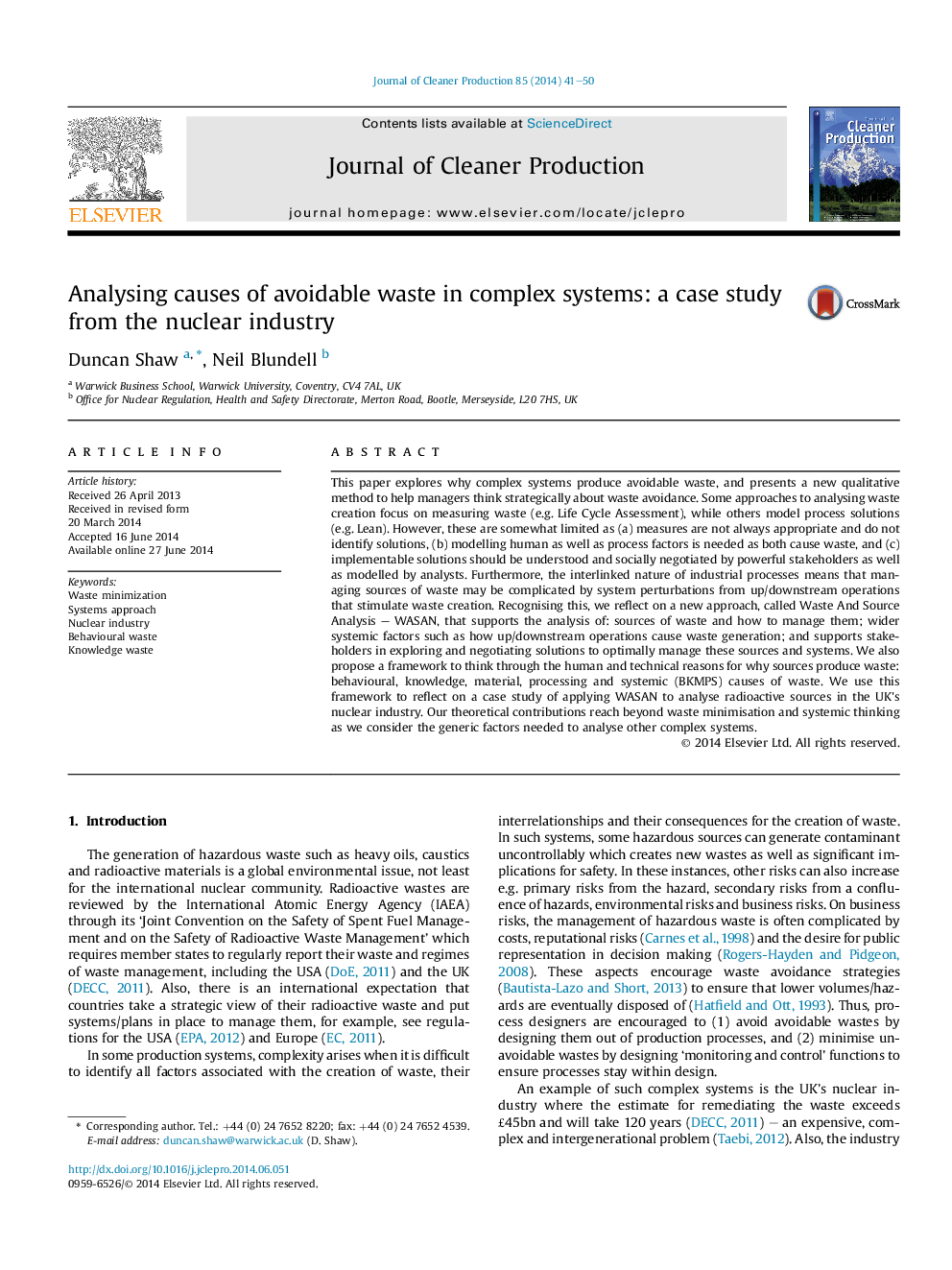| Article ID | Journal | Published Year | Pages | File Type |
|---|---|---|---|---|
| 1744801 | Journal of Cleaner Production | 2014 | 10 Pages |
This paper explores why complex systems produce avoidable waste, and presents a new qualitative method to help managers think strategically about waste avoidance. Some approaches to analysing waste creation focus on measuring waste (e.g. Life Cycle Assessment), while others model process solutions (e.g. Lean). However, these are somewhat limited as (a) measures are not always appropriate and do not identify solutions, (b) modelling human as well as process factors is needed as both cause waste, and (c) implementable solutions should be understood and socially negotiated by powerful stakeholders as well as modelled by analysts. Furthermore, the interlinked nature of industrial processes means that managing sources of waste may be complicated by system perturbations from up/downstream operations that stimulate waste creation. Recognising this, we reflect on a new approach, called Waste And Source Analysis – WASAN, that supports the analysis of: sources of waste and how to manage them; wider systemic factors such as how up/downstream operations cause waste generation; and supports stakeholders in exploring and negotiating solutions to optimally manage these sources and systems. We also propose a framework to think through the human and technical reasons for why sources produce waste: behavioural, knowledge, material, processing and systemic (BKMPS) causes of waste. We use this framework to reflect on a case study of applying WASAN to analyse radioactive sources in the UK's nuclear industry. Our theoretical contributions reach beyond waste minimisation and systemic thinking as we consider the generic factors needed to analyse other complex systems.
